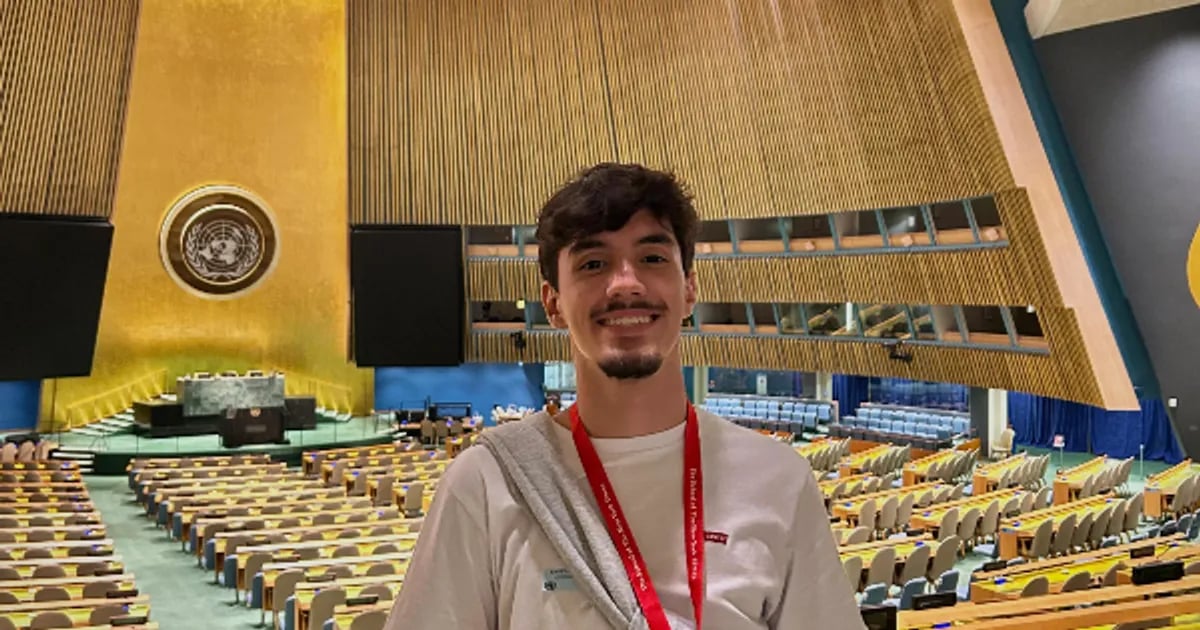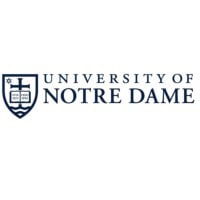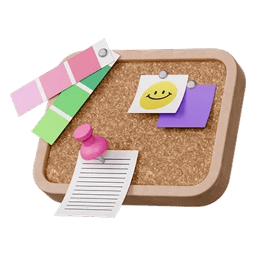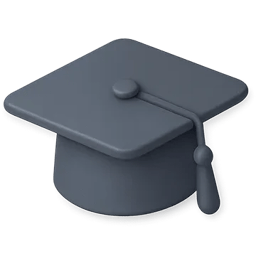¡Hola! Mi nombre es Raphael Durval, y fui aceptado en la Universidad de Notre Dame, promoción del 2029. ¡Aquí les cuento cómo lo logré!

Mi Trayectoria
Fui un estudiante becado por mérito en una escuela de barrio en Río de Janeiro llamada Colégio Pentágono. Aunque era una escuela privada académicamente sólida, no se enfocaba en las solicitudes para universidades internacionales, por lo que a menudo me encontraba enseñándole a la escuela sobre el proceso en lugar de al revés.
Económicamente, provengo de un entorno de clase media. Aunque asistí a una excelente escuela privada con beca, la falta de apoyo para las solicitudes internacionales hizo que el proceso fuera más desafiante. Solo descubrí el proceso de solicitud al final de mi segundo año de secundaria, lo que me dio menos de un año y medio para aprender todo y preparar mi solicitud.
Solicitar en el extranjero y en EE. UU.
Al principio, no sabía nada sobre el proceso de solicitud universitaria. Luego, un amigo mío, que también estaba solicitando, me dijo: "Oye, deberías probar el Modelo de Naciones Unidas".
Así que lo hice, y terminé amándolo. Siempre me han gustado los temas generales que discutimos en el MUN: países, política, historia, todo eso. Me involucré en el MUN, y como es una actividad extracurricular tan importante, naturalmente terminé aprendiendo más sobre el mundo de las solicitudes universitarias también.
La razón principal por la que quería estudiar en el extranjero era el aprendizaje de idiomas. Incluso consideré otras regiones: en realidad no solicité allí, pero investigué opciones en lugares como Europa o incluso Asia. Aunque muchos programas son en inglés, las universidades en esas regiones a menudo ofrecen una gran infraestructura para el aprendizaje de idiomas, lo que realmente me atraía.
Mis principales motivaciones eran la ventaja académica, la capacidad de aprender idiomas y las oportunidades profesionales.
Al final, decidí optar por las universidades de EE. UU. debido a la proximidad a lugares como Boston, Nueva York y D.C., que son centros importantes para organizaciones internacionales.

Aceptaciones
Solicité ingreso a 16-17 universidades y fui aceptado en tres, incluyendo Georgetown University y American University. Finalmente, me comprometí con la University of Notre Dame debido a una oferta de beca.
¿Por qué Notre Dame?
Notre Dame siempre estuvo en mi radar en parte porque vengo de una familia tradicionalmente católica, y la universidad tiene un fuerte enfoque en el servicio, lo cual realmente se alinea con mis antecedentes. Ellos enfatizan el servicio como una parte fundamental del perfil de sus estudiantes — buscan activamente estudiantes que estén involucrados en trabajos de servicio significativos.
Aunque no tenía actividades extracurriculares específicamente relacionadas con la iglesia, muchas de mis participaciones estaban vinculadas al activismo educativo y el servicio comunitario, como campañas de donación y proyectos de impacto social.
De hecho, elegí Notre Dame porque recibí una beca completa. Estaba realmente feliz con eso, especialmente porque este año (para la clase entrante en septiembre), 43 brasileños fueron admitidos — un récord histórico. Notre Dame tiene una política de ayuda financiera muy generosa para estudiantes internacionales. Cubren todas las necesidades financieras y son ciegos a la necesidad económica, lo que los distingue de muchas otras universidades.
Estadísticas y Consejos
Terminé la secundaria con un promedio de 9.3/10 y fui el primero de mi clase graduada. Obtuve una puntuación de 140/160 en el DET.
Siempre he sido bastante básico en cuanto a estudiar, para mí el mejor método era tomar un cuaderno y escribir resúmenes. Luego, leer el material una y otra vez, como si fuera un actor preparándose para un papel en una película.
Para el DET, recomiendo encarecidamente el canal de YouTube "Teacher Luke". Su contenido es un excelente recurso para estudiar y prepararse eficazmente para el examen.

Actividades Extracurriculares
Mi primera y principal actividad extracurricular fue Carioca MUN. Comenzó de manera bastante casual: tres de nosotros bromeando durante una simulación de Modelo de Naciones Unidas sobre crear nuestro propio evento en línea. Así que lo hicimos. Tenemos dos pilares principales: uno es oportunidades académicas para estudiantes universitarios en Brasil y el otro es el proceso de solicitud para universidades de EE. UU.
Originalmente, Carioca MUN éramos solo nosotros tres queriendo organizar nuestro propio evento de simulación. Se suponía que sería algo de una sola vez. Pero poco a poco, empezamos a hablar más sobre cosas que nos gustaban: temas de relaciones internacionales, publicar contenido relacionado con esos intereses y simulación. Comenzamos a invitar a jóvenes de escuelas privadas y públicas a asistir a simulaciones presenciales. Formamos delegaciones y organizamos simulaciones en línea desde nuestras ubicaciones. Como no teníamos financiamiento, nos enfocamos en estudiantes que nunca habían participado antes, llevándolos a simulaciones alrededor de Río de Janeiro, que tiene muchas oportunidades de simulación.
Gradualmente, también comenzamos a participar en eventos internacionales, como el G20. Hoy en día, producimos contenido sobre Modelo de Naciones Unidas, noticias globales y regularmente llevamos a jóvenes a simulaciones de la ONU. También hemos sido invitados varias veces a escuelas públicas para hablar sobre oportunidades académicas y compartir nuestras experiencias.
También fundé una campaña humanitaria para sobrevivientes de inundaciones urbanas en São Paulo, Río de Janeiro y Rio Grande do Sul. Fueron tres momentos distintos pero involucraron al mismo grupo central de personas. Convertimos nuestra escuela en un centro de recolección de donaciones. En todas las campañas, recolectamos más de 3.5 toneladas de ayuda humanitaria.
He participado extensamente en Modelo de Naciones Unidas, ganando premios en Princeton, Yale, Harvard y varias simulaciones nacionales. También usé las simulaciones para practicar inglés académico, lo que me ayudó mucho ya que es difícil obtener exposición a ese nivel de idioma fuera del estudio formal.
Otras actividades en las que participé incluyen ser el representante del consejo estudiantil y orador de graduación en mi escuela; asistir al curso de verano en el New York Times y ser el capitán del equipo de voleibol de mi escuela.
Mi Declaración Personal
Quería que mi declaración personal jugara con el concepto de historia, tanto como asignatura académica como mi propia historia personal. Así que comencé con una reflexión sobre lo que significa "independencia" desde una perspectiva histórica. No opté por una definición de diccionario ni nada por el estilo, simplemente afirmé que, en la historia, la independencia a menudo se ve como sinónimo de fortaleza.
Luego, introduje un ejemplo: escribí sobre cómo los revolucionarios brasileños que lucharon contra el colonialismo portugués me inspiraron durante mis clases de historia. Pero justo después, añadí un giro: "Sin embargo, debo admitir: odio la independencia".
Expliqué cómo me crié en la casa de mi abuela porque mis padres siempre estaban trabajando o estudiando. A lo largo de mi infancia, y honestamente, la mayor parte de mi vida, tuve un contacto muy limitado con ellos durante el día. Eso me llevó a volverme extremadamente autosuficiente. Tuve que cuidarme solo, estudiar solo y resolver las cosas por mi cuenta, especialmente cuando llegué a mi último año de secundaria.
Pero aunque aprendí a ser independiente, nunca dejé de extrañar profundamente a mis padres. Aproveché la oportunidad en mi ensayo para explorar este lado psicológico, el impacto emocional de crecer con una presencia parental limitada, a pesar de saber que estaban haciendo todo lo posible por mí.
Me enfoqué mucho en mis antecedentes, mi objetivo era resaltar mi personalidad. Hacia el final del ensayo, compartí un recuerdo que unió todo: durante los descansos escolares, cuando más extrañaba a mis padres, solía ir a trabajar con ellos en la tienda que tenían. Esa experiencia me hizo darme cuenta de lo duro que trabajaban para darme todas las oportunidades que tenía. Así que sí, era independiente. Pero nunca estuve solo. Mis padres siempre estuvieron ahí para mí, siempre me respaldaron.
Ayuda Financiera
Como he mencionado anteriormente, recibí una beca completa para asistir a la University of Notre Dame. Además de eso, también tengo garantizado un trabajo en el campus.







